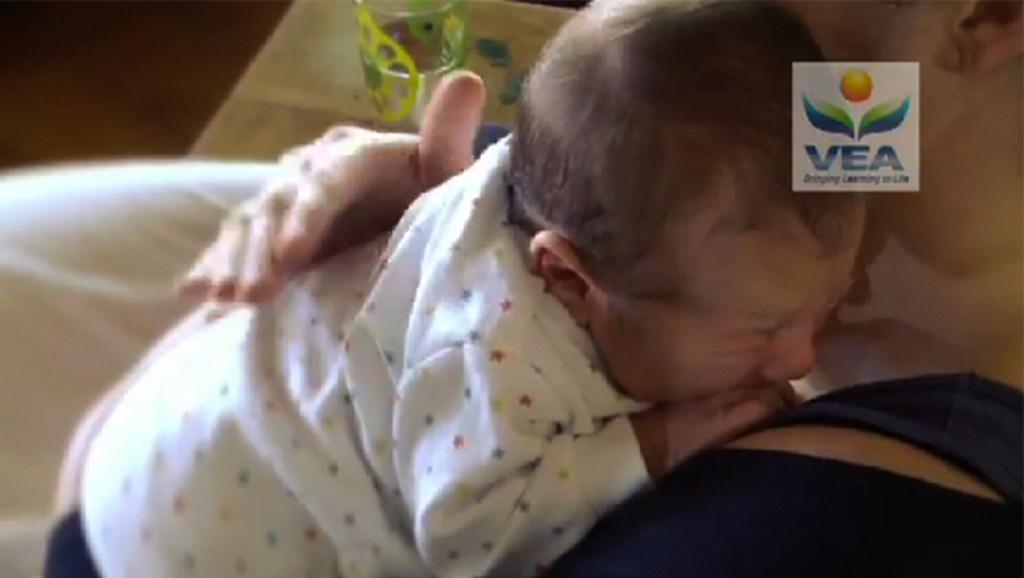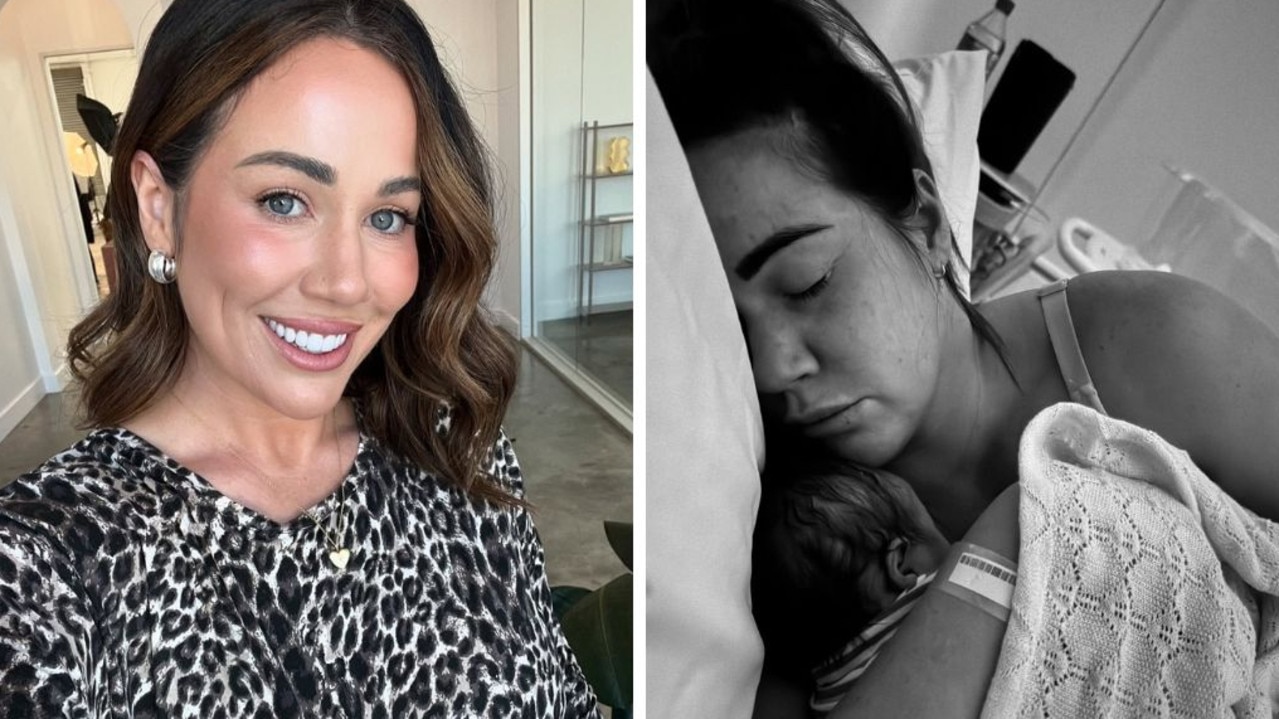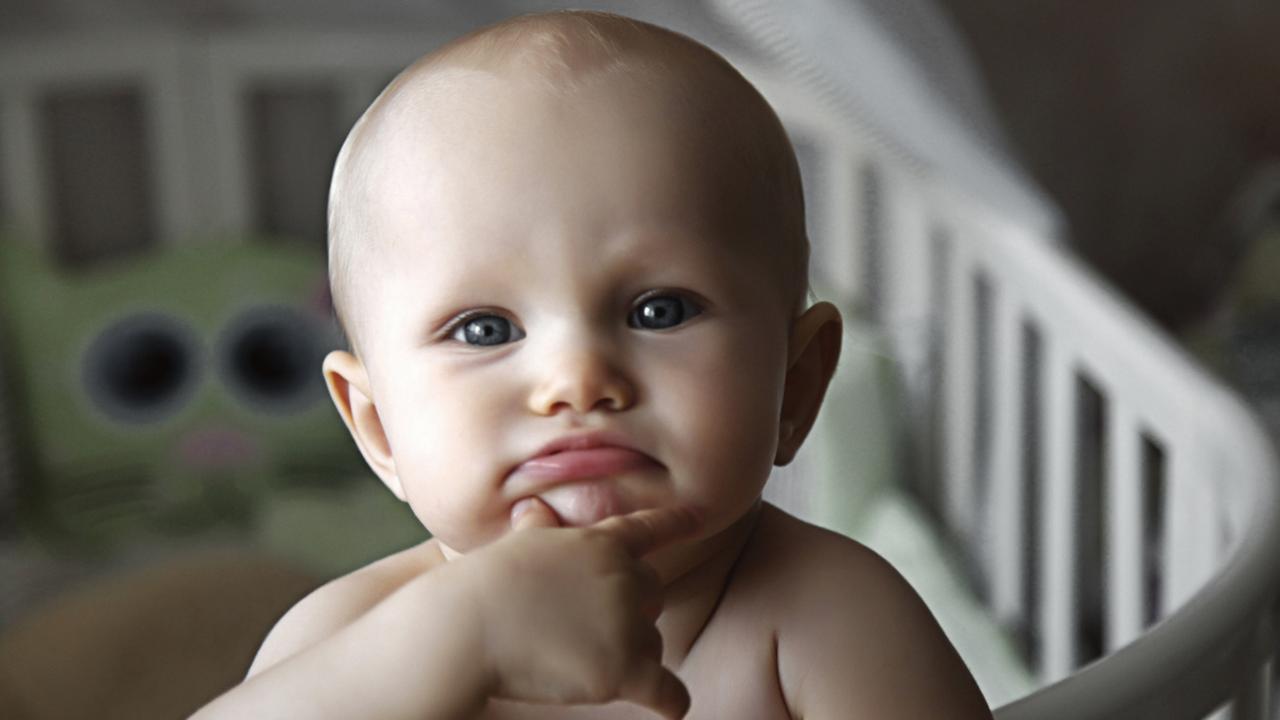Mother shows what post-partum depression looks like in just two photos
IN two heartbreaking photos, a mother has revealed what post natal depression really looks like behind closed doors.
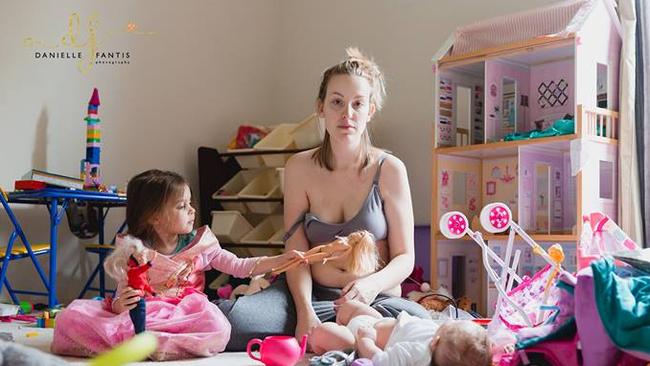
IN two photos, a mother has revealed what post natal depression really looks like.
American mother-of-two Kathy DiVincenzo attempted to highlight the struggle a mother faces, by sharing a brutally honest photo of herself with her two young children.
The first image shows DiVincenzo — who suffers from post natal depression, anxiety and OCD — drowning in her daughter’s messy bedroom, while trying to change her younger baby’s nappy.
Her hair is in a dishevelled bun, and her crop top dangles from one shoulder — almost exposing her right breast.
Her face is defeated and miserable.
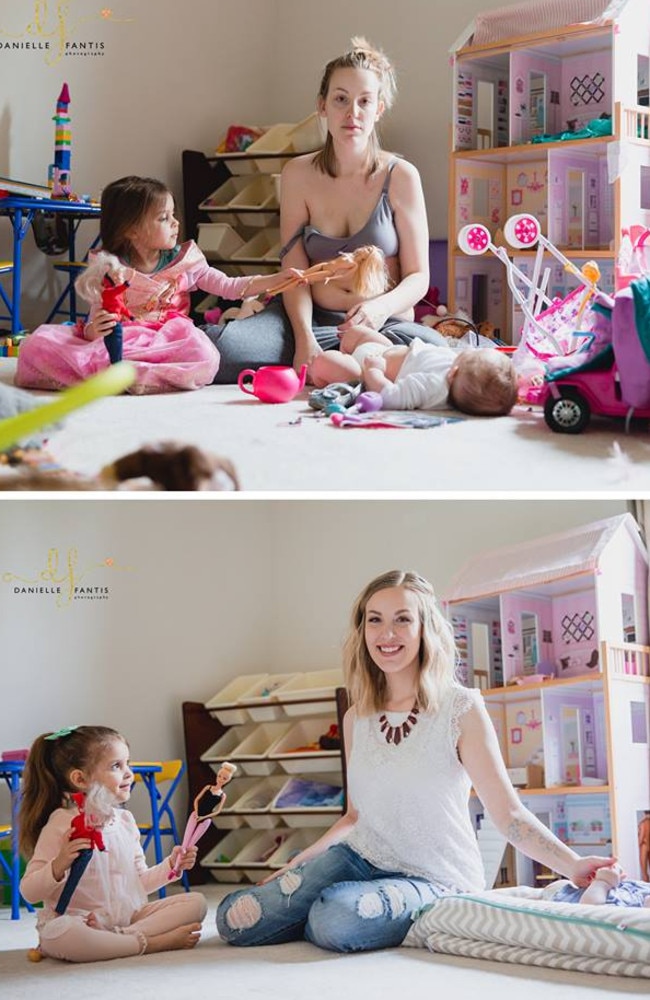
The second image taken in the same room, looks bright and fresh and embodies a mother who has parenting perfected.
Her hair is scooped in to a neat hairstyle paired with jeans and a clean white top. Her eldest child is dressed neatly, and playing with two dolls in a tidy room — while her young baby sleeps in a cosy bed.
She’s smiling and relaxed — a far cry from the first photo.
DiVincenzo, who shared the images on Facebook on May 1 said the reason behind her post was to show how her life as a mother changes depending on the day.
“I feel like it’s time to show you what that can really look like, not just the side of me that’s “Facebook worthy,” DiVincenzo wrote.
“The truth is, both of these pictures represent my life depending on the day.
“I would only ever comfortably share one of these realities though and that’s the problem. The only thing more exhausting than having these conditions is pretending daily that I don’t.
“I work twice as hard to hide this reality from you because I’m afraid to make you uncomfortable.
“I’m afraid you’ll think I’m weak, crazy, a terrible mother, or the other million things my mind convinces me of and I know I’m not alone in those thoughts.”
Read more: Government announces Medicare-funded mental health assessments for pregnant women
DiVincenzo said she hoped the images, which were shot by her friend Danielle from Danielle Fantis Photography, broke the stigma around post natal depression.
“We need to stop assuming that the post-partum period is always euphoric, because for 1 in 7 it’s not.,” she wrote.
“We need to start asking new parents how they’re doing in a deeper way than the normal, “so how are you doing?” that triggers the knee jerk, “everything’s great!” response.
“We need to learn the signs, symptoms, risk factors, and support plans for post-partum conditions.
“We need to break the stigma and #EndTheSilence by sharing our stories and letting others know they’re not alone.”
DiVincenzo’s post, which has been shared more than 68k times, triggered thousands of comments from women supporting her message and experience.
“I had post-partum depression for almost a year after my first baby and it all started about two weeks after he was born,” one woman wrote.
“I thought I had to be the perfect mum ... I broke and my sister rescued me.”
“Such powerful pics. I didn’t know what this really was till it happened to me. and this is so spot on,” another added.
“Thank you for being brave and sharing the honesty of motherhood and an issue that so many women have faced.”
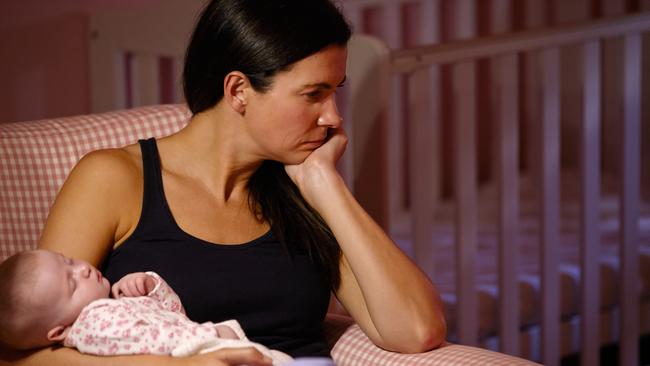
According to Perinatal Anxiety & Depression Australia, 80 percent of people believe postnatal depression is not a sign of weakness. In addition, 92 percent of people believe that postnatal depression does not stop a woman from being a good mother.
Post-natal depression and anxiety (PNDA) occurs in all cultures and can happen to child bearing women of all ages, but pregnancy is the common factor. PNDA tends to be characterised by a combination of symptoms, including:
• Panic attacks (a racing heart, palpitations, shortness of breath, shaking or feeling physically ‘detached’ from your surroundings)
• Persistent, generalised worry, often focused on fears for the health or wellbeing of baby
• The development of obsessive or compulsive behaviours
• Increased sensitivity to noise or touch
• Changes in appetite: under or overeating
• Sleep problems unrelated to the baby’s needs
• Extreme lethargy: a feeling of being physically or emotionally overwhelmed and unable to cope with the demands of chores and looking after baby
• Memory problems or loss of concentration (‘brain fog’)
• Loss of confidence and lowered self esteem
• Constant sadness or crying
• Withdrawal from friends and family
• Fear of being alone with baby
• Intrusive thoughts of harm to yourself or baby
• Irritability and/or anger
• Increased alcohol or drug use
• Loss of interest in sex or previously enjoyed activities
• Thoughts of death or suicide
For more information, contact the PANDA helpline on 1300 726 306 or visit panda.org.au
